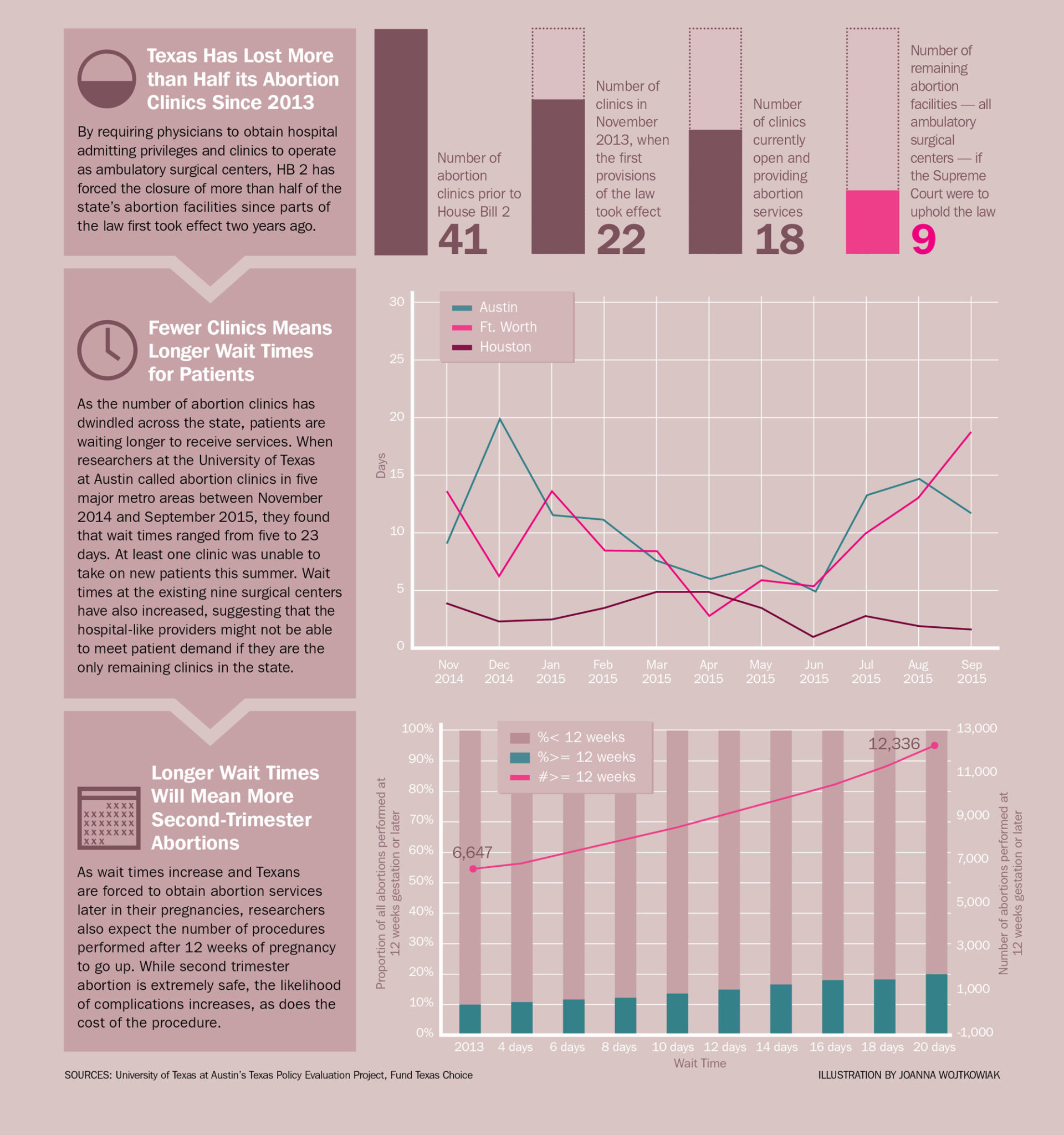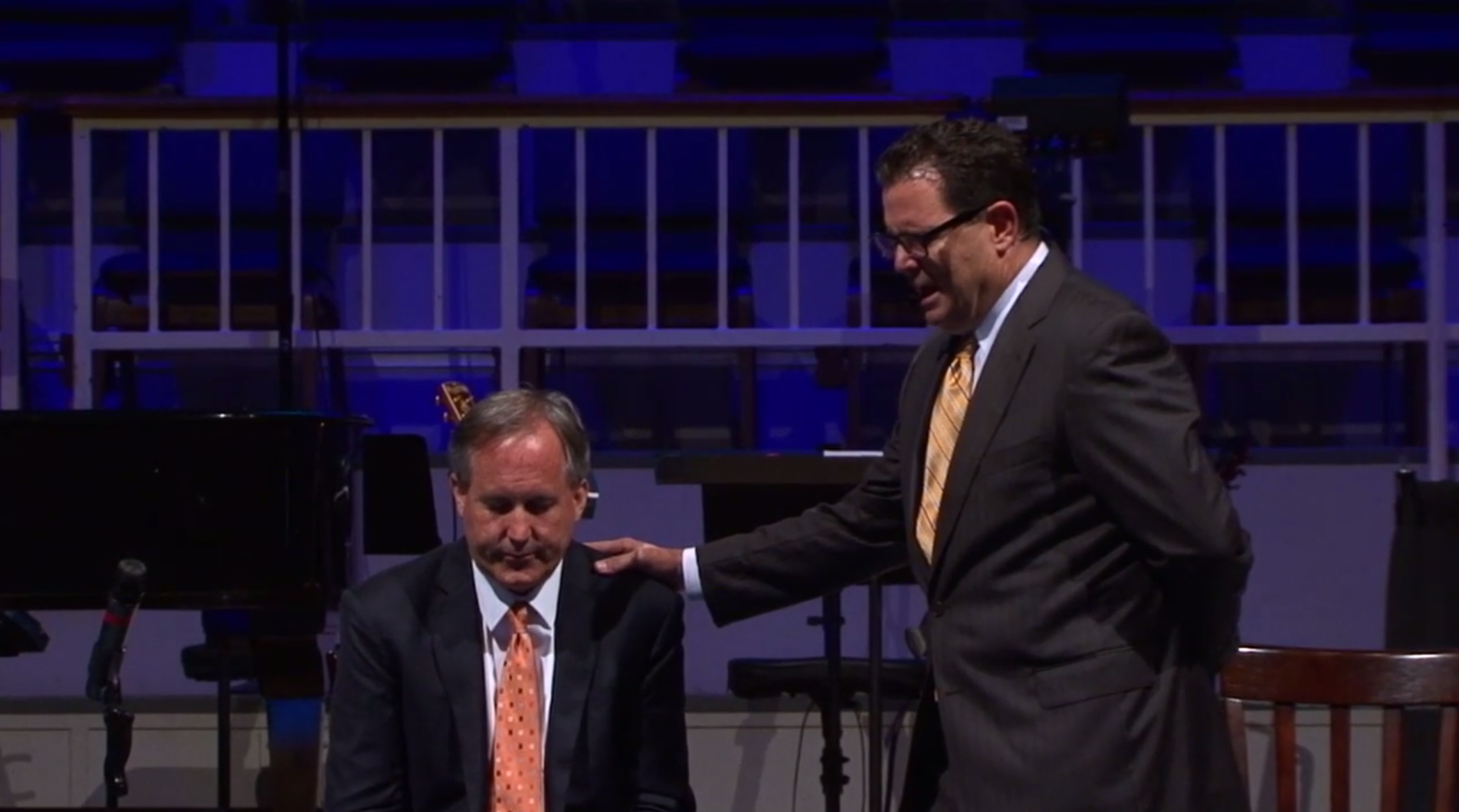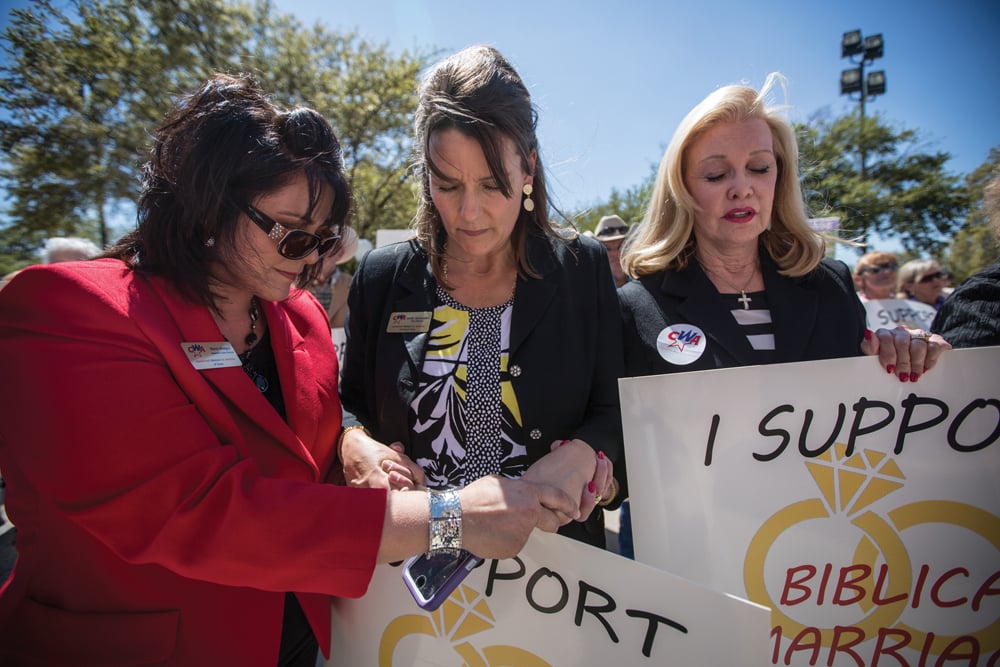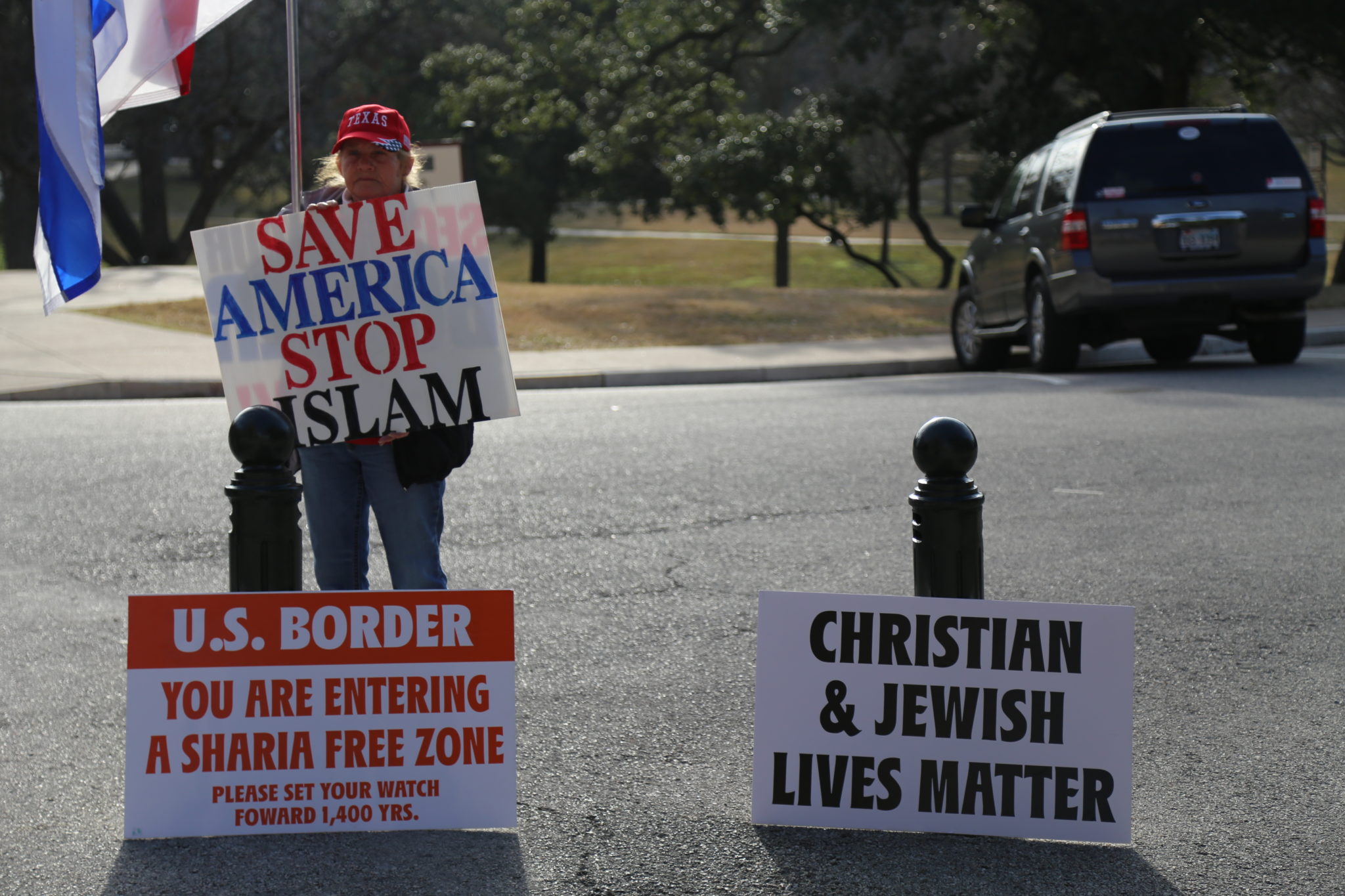
‘American Laws for American Courts’ Proposals Met with Skepticism
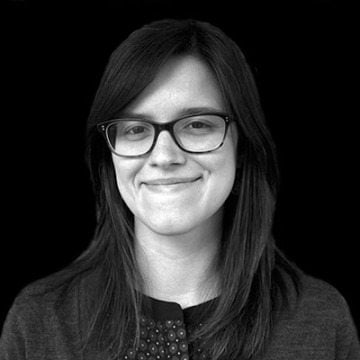
Above: Anti-Muslim protester Milly Wassum at the Texas Muslim Capitol Day.
Some state lawmakers are concerned that American courts may not follow American laws. There’s no evidence of, say, Swedish common law creeping into the Texas court system, but a few GOP legislators want to make sure foreign influence never stands a chance. That goal may seem innocuous—if not redundant—but the bill authors are fending off accusations that “American Laws for American Courts” legislation is intentionally discriminatory toward Muslims and could have unintended consequences for many other religious groups as well.
On Tuesday, Rep. Dan Flynn (R-Canton) told the House Judiciary and Civil Jurisprudence Committee that many of his constituents believe American liberties are “under attack” by nefarious foreign influences, and need to be assured that American law will continue to be enforced “on American soil.” Flynn’s HJR 32 proposes a constitutional amendment directing the courts to “uphold and apply” the Texas and U.S. constitutions as well as state and federal law.
Flynn is also carrying HB 670, which says that a court’s ruling “may not be based on foreign law if the application of that law would violate a right guaranteed by the United States Constitution.”
Committee members asked the obvious questions: What’s the need for these bills? Isn’t it already the case that American courts follow American laws? When has this ever been a problem?
Flynn didn’t have any specific examples to share. Religious laws are often used to draw up civil contracts, and many mainstream religious groups have tribunals that issue non-binding rulings on civil disputes. Some believe that a mosque—or church, or synagogue—is a more appropriate arena to solve certain disputes than a courtroom. Participation in these tribunals is voluntary, and while a religious court’s decision may be referenced in a public court, those decisions do not legally supersede state or federal laws. According to Joshua Houston, an attorney with the interfaith advocacy organization Texas Impact, in the end the Constitution—and the legal order of authority—trumps all.
Flynn said that the bills were supposed to be preemptive, to ensure that there aren’t any problems down the road. He’s worried that without an explicit directive “activist judges” might begin to let foreign laws supersede American laws.
Rep. Travis Clardy (R-Nacogdoches) was the first of many committee members to express his skepticism.
“The buzzword everyone’s talking about is the use of Shariah law in Texas courts,” Clardy said. “I don’t know every judge in Texas, but I know a lot of them, and I have no fear or concern that the judges that I know and that I observe doing that in lieu of or in place of the federal constitution or the state constitution.”
Rep. Jeff Leach (R-Plano) said his bill, HB 562, doesn’t target any specific foreign law or religion, and those who claim it’s directed at a certain belief system are “misguided.” The scope of Leach’s bill is narrower than Flynn’s, applying only to family law (proceedings involving marriage or suits “affecting the parent-child relationship”).
All three bills, however, are derived from model legislation that was specifically designed to be anti-Shariah. Commonly known as “American Laws for American Courts,” the concept is the brainchild of lawyer and anti-Shariah activist David Yerushalmi (profiled in this New York Times article). It’s been passed in several states, most recently in Alabama. According to the Times, the language in these bills is intentionally vague, “worded neutrally enough that they might withstand constitutional scrutiny while still limiting the way courts handle cases involving Muslims.”
While the representatives and several witnesses in support of the bill may have tiptoed around mentioning Islam in particular, the hearing was tinged with an uncomfortable disrespect for the religion. Rep. Senfronia Thompson (D-Houston) asked one witness—Sarwat Husain, president of the San Antonio chapter of the Council on American-Islamic Relations—to explain Shariah. When Husain said that “Shariah law is just following the guidance of God,” the audience erupted in groans and laughter.
“Muslims are loyal, law-abiding and tax-paying citizens,” Husain said. “We expect to be treated as equals in society and do not wish to be stigmatized, demonized, or treated like second-class citizens.
The extent of the practical implications of the legislation is still unclear. Analysts say the laws might affect the way churches can govern their own internal affairs, and could also affect adoptions, wills, marriages and divorces. According to Houston, the vague language in the bills could affect the law in “really unpredictable ways.” Houston said he’d seen a substitute—yet to be finished and given to committee members—to Leach’s original bill, which refers not only to “unconstitutional” religious laws but also to laws that “violate good morals” or “natural justice.”
“If we’re worried about activist judges going off the reservation—that language actually invites them to do that,” Houston said.
Leach said that one-third of the House had signed onto his bill, but that’s no indication that it will make it out of committee. Members seemed confused and unconvinced by arguments in support of the bills, calling them a “solution in search of a problem.” Clardy said lawmakers should restrain from passing unnecessary laws and said “if we don’t have a true issue before us, then we need to leave it alone.”
“We’ve got real issues in this state,” Clardy said.
